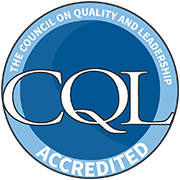ISSUE
Today, as throughout history, the human and civil rights of people with intellectual and/or developmental disabilities have been unjustifiably limited or denied based on a lack of understanding of their humanity. These rights include the right to autonomy, dignity, family, justice, life, liberty, equality, self-determination, community participation, property, health, well-being, access to voting, freedom from unwarranted and unjustifiably extensive guardianship, equality of opportunity, and other rights recognized by law or international declarations, conventions, or standards.
Though freedom from discrimination is a basic human right accepted as part of the fundamental law of the land, advancing the human and civil rights of people with intellectual and/or developmental disabilities presents particular challenges.
Many individuals, businesses, federal, state, and local government agencies and other entities remain unaware of or ignore the human and civil rights of people with intellectual and/or developmental disabilities. As a result, people with intellectual and/or developmental disabilities face unique challenges, including the following:
- A history of discrimination and exclusion from meaningful choice and participation in employment, housing, voting, transportation, and other programs, activities, and services provided by the public and private sectors of society;
- Social and cultural attitudes of devaluation and fear;
- Unfounded beliefs that people with intellectual and/or developmental disabilities cannot and/or do not contribute to society;
- Societal failure to provide the supports wanted and needed for full community participation, equal opportunity, independent living, and economic self sufficiency;
- Overprotection without freedom to exercise individual rights;
- Under-payment for labor and services and denial of the means of economic self-sufficiency;
- Forced impoverishment;
- Prejudice that views people with intellectual and/or developmental disabilities as unworthy of progressive public policies and related public funding; and
- The presence of other factors that, in combination with intellectual and/or developmental disabilities, expose them to increased risk of rights violations. These factors include: age; gender; race/ethnicity; sexual orientation; cultural, linguistic, geographic, or spiritual diversity; economic status; severity of disability; intensity of needed supports; and others.
POSITION
All people with intellectual and/or developmental disabilities are entitled to human and civil rights. Given that all people with intellectual and/or developmental disabilities are complex human beings with varying attributes and living circumstances, and many experience multiple risk factors for human and civil rights violations, we emphasize that all are entitled to human and civil rights regardless of age, gender, race/ethnicity, sexual orientation, cultural, linguistic, geographic, and spiritual diversity, economic status, severity of disability, intensity of needed supports, or other factors that expose them to increased risk of rights violations.
These rights include the rights to autonomy, dignity, family, justice, life, liberty, equality, self-determination, community participation, property, health, well-being, access to voting, and equality of opportunity and others recognized by law or international declarations, conventions, or standards. All people with intellectual and/or developmental disabilities must have the right to supports they need to exercise and ensure their human and civil rights. Local, state, federal, and international governments must strongly enforce all human and civil rights.
Rev’d 2015
Joint statement with the American Association on Intellectual and Developmental Disabilities (AAIDD).
1“People with intellectual disability and/or developmental disabilities” refers to those defined by the AAIDD classification and DSM IV. In everyday language they are frequently referred to as people with cognitive, intellectual and/or developmental disabilities although the professional and legal definitions of those terms both include others and exclude some defined by DSM IV.







